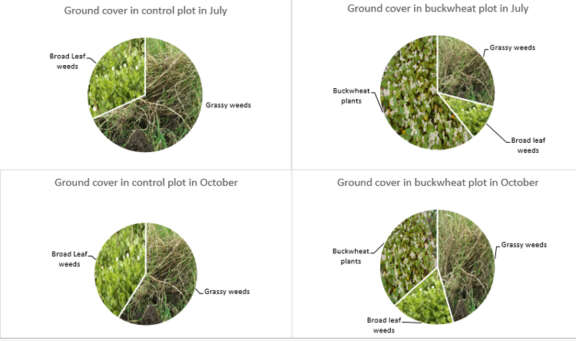Members' experiments
Can buckwheat be used to control couch grass?
Most people have had trouble with couch grass at some time. It is a very competitive weed that exerts a two-prong attack by regenerating from both rhizomes and seed heads.
There have been reports that buckwheat can suppress couch grass not only through competing against it but releasing ‘allelochemicals’ that inhibit sprouting of the grass from the rhizome. We wanted to investigate this further.
Members dug over a patch of couch grass in May, then sowed buckwheat on half of the area. The objective was to see whether the buckwheat would stop the couch grass coming back.
The buckwheat was rapid to emerge, and by June it had almost completely covered the ground in most cases. The couch grass was just as rapid to emerge, and first reared its ugly head in mid May, just a few weeks after being cleared.
From June – September, the buckwheat did a good job of suppressing the couch grass by vigorously competing against it.
Unfortunately, there were no clear suppressive effects beyond the lifetime of the buckwheat. Once the buckwheat started to die back after September, the couch grass came back with just as much vigour as before, and whilst there were still benefits lasting into October, it was difficult to see any long-term effects of the buckwheat beyond November.
Despite the lack of long-term suppressive effects against couch grass, we could still recommend sowing buckwheat on a spare bed or piece of land. It was vigorous, so needed little attention or weeding, and its flowers were attractive to beneficial insects and pollinators.
